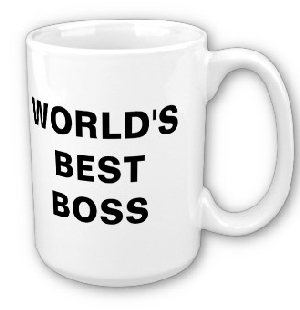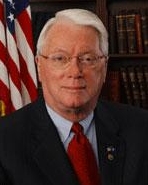 The protection of intellectual property should be a significant concern to all Information Technology organizations. Without protection, commercial hardware/software vendors would quickly evaporate as others would inevitably steal their designs and programs. Corporate developers would also suffer if their ideas, inventions, and programs were misappropriated thereby causing them to lose their competitive advantage. In fact, our corporate landscape and standard of living would be radically different if we had no such protection. Fortunately, the framers of the U.S. Constitution were wise enough to implement legislation safeguarding the authorship and ownership of literature, art, and inventions, thus causing the United States to flourish in the arts and sciences. But the advent of the computer caused us to reconsider how we safeguard such property. For example, the concept of a computer program has been a bit nebulous to some people; should the source code be protected by copyright? What about the object code (executable)? Attorneys have been debating this subject over the last thirty years and there is still general confusion in the field.
The protection of intellectual property should be a significant concern to all Information Technology organizations. Without protection, commercial hardware/software vendors would quickly evaporate as others would inevitably steal their designs and programs. Corporate developers would also suffer if their ideas, inventions, and programs were misappropriated thereby causing them to lose their competitive advantage. In fact, our corporate landscape and standard of living would be radically different if we had no such protection. Fortunately, the framers of the U.S. Constitution were wise enough to implement legislation safeguarding the authorship and ownership of literature, art, and inventions, thus causing the United States to flourish in the arts and sciences. But the advent of the computer caused us to reconsider how we safeguard such property. For example, the concept of a computer program has been a bit nebulous to some people; should the source code be protected by copyright? What about the object code (executable)? Attorneys have been debating this subject over the last thirty years and there is still general confusion in the field.
In 1974, MBA embarked on our own lawsuit to protect the "PRIDE" methodology. This was a lengthy legal battle which took the courts into unchartered waters. At the time, "PRIDE" was nothing more than a methodology implemented with printed manuals and forms (no software support at the time). To safeguard our product, our lawyers drafted a standard nondisclosure agreement which all prospective buyers would sign prior to our sales presentation. Further, our contracts included similar verbiage instructing the customer to safeguard the physical embodiment of the product and not to divulge it to unauthorized third parties.
We were contacted by Arthur Young & Company in 1974 to conduct a "PRIDE" sales presentation for one of their consulting clients in Milwaukee, Wisconsin; the Harley Davidson Motorcycle Company (then a division of AMF). The attendees signed the nondisclosure agreement and the presentation was conducted as usual. Following the presentation, MBA was informed that Harley wouldn't be purchasing our product, and that Arthur Young would be developing a similar methodology for Harley instead. This made MBA suspicious, particularly since one of Young's consultants was a former "PRIDE" user. Consequently, MBA initiated a lawsuit over misappropriation of trade secrets.
This turned into a long and ugly legal battle which lasted eight years. Basically, the lawyers for the opposition contended that since the "PRIDE" materials had copyright notation printed on them, they were in the public domain. In contrast, it was our contention that "PRIDE" was a trade secret. In the end, we won the lawsuit and "PRIDE" was proven to be a trade secret in a court of law. This litigation established many precedents and is often referenced in similar cases; for additional information, see:
Chicago-Kent College of Law
Library Law
Many years have gone by since the verdict was passed. In 1989, Arthur Young & Company merged with Ernst and Ernst (now called Ernst & Young), the principals of the case have moved on and we no longer bear any ill-will towards the company. Further, "PRIDE" was placed on the Internet in 2004 (with copyright notation).
As a result of the lawsuit, MBA learned a lot about the protection of intellectual property. I may not be an attorney, but you may look upon this as a convenient primer to protect yourself.
COPYRIGHTS
Copyrights are primarily concerned with the authorized reproduction of such things as text, graphics, music, and audio/video recordings. As such, it protects publishers, authors, artists, and designers from unauthorized republication or redistribution of their work. Not too long ago, in order for a copyright to be enforceable, it had to be registered with the copyright office. However, the laws were somewhat loosened in 1976 whereby copyright protection is now effective from the moment the work is first created in fixed form. Although the use of copyright notation is no longer mandatory, it is highly beneficial to include it whenever possible to indicate your work is protected by copyright. Notation typically appears as:
"Copyright © 2007 ABC Company"
Since computer program source code is written as text, it is a wise idea to add such notation in the source code. But understand this, copyright only protects the work from unauthorized reproduction, it does not protect the author's ideas (which is how the lawyers of Arthur Young argued against us). Although the exact source code cannot be reused, it does not protect the logic of the program. To illustrate, suppose a new employee brings with him some source code from his last place of employment. Copyright protection would prohibit him from reusing the source code, but it wouldn't stop him from using the ideas contained in the program. Unfortunately, most programmers do not like to reinvent the wheel and, as such, frequently reuse source code over and over again. From this perspective, probably every company with an I.T. department is guilty of some form of copyright infringement.
TRADE SECRETS
A trade secret is much different than a copyright. Basically, it represents some unique formula, design or idea. Perhaps the best known example of a trade secret is the Coca-Cola syrup formula which is strictly protected in a vault. There are essentially two elements for establishing a trade secret; first, that it is a "unique" idea or formula, that it has distinguishable characteristics or properties to differentiate it from others, and; second, that you can demonstrate you are taking effective safeguards to protect it from unauthorized use (hence, making it a "secret"). In the lawsuit over "PRIDE", we were able to successfully demonstrate that "PRIDE" was unique and that we had taken adequate steps to safeguard unauthorized use (our nondisclosure agreement).
PATENTS
A patent is similar to a trade secret in that the inventor has a unique idea or device he wishes to prevent others from producing. To implement a patent, the idea or device must be registered with the U.S. Patent and Trademark Office. A registration process is required which includes a fee. For an invention to be patented, it must be proven to be unique, useful, and not of an obvious nature. If a patent is granted, the inventor is protected from others producing a similar invention for a limited period of time (20 years). The patent is renewable at the end of this period.
The computer field makes active use of patents to establish unique inventions and protect them from others For example, IBM typically registers the most patents each year, both hardware and software.
TRADE MARKS/SERVICE MARKS
A trademark is an arbitrary word, name, symbol, or device used to distinguish a particular product. A service mark is similar except it is used to distinguish a particular service. For example, "PRIDE" is the registered trademark of M&JB Investment Company.
Like a patent, the trade/service mark has to be registered with the U.S. Patent and Trademark Office. And, Yes, a registration fee is required. Notation normally accompanies the trademark to indicate it is registered ®. Use of such notation should be encouraged so that others know your product or service is a trademark.
A trade/service mark means no other company can use it to offer a competing product or service unless authorized by the company holding its title. As such, it is closely related to the integrity of the title company. If a competitor uses it, the public will assume they are somehow aligned with your business and, as customers of your competitor, are entitled to the same level of service or quality your business offers. If the competitor fails in this regards, it is a reflection of both your product/service and your company which could damage your business.
CONCLUSION
When MBA was founded, we were very lucky to get good, sound legal advice for protecting our intellectual property. Because of this, I encourage anyone concerned in this regard to seek such advice from a qualified attorney.
Another way to assist in the protection of your intellectual property is to enact some form of employee agreement, whereby the employee agrees not to misappropriate your products (such as designs and software), or use other intellectual property without expressed authorization. This puts your employees on notice.
Devices such as copyrights, trade secrets, patents, trade/service marks are very helpful for preventing the unauthorized use or distribution of your products. However, if someone really wants to pirate your products, they will. When you catch someone in the act though, try to give them a way out. I always recommend that you try to avoid litigation whenever possible. I find such lawsuits primarily benefit the attorneys and nobody else. But if your livelihood is genuinely threatened, as ours was, then you have no alternative but to use the full force of the law.
Keep the Faith!
Note: All trademarks both marked and unmarked belong to their respective companies.
 Tim Bryce is the Managing Director of M. Bryce & Associates (MBA) of Palm Harbor, Florida and has over 30 years of experience in the management consulting field. He can be reached at timb001@phmainstreet.com
Tim Bryce is the Managing Director of M. Bryce & Associates (MBA) of Palm Harbor, Florida and has over 30 years of experience in the management consulting field. He can be reached at timb001@phmainstreet.com
For Tim's columns, see:
http://www.phmainstreet.com/timbryce.htm
COMING IN JULY: "Tin Heads" - where transportation merges with communications. What is Bryce up to now?
 After seeing so many marriages end in divorce, you cannot help but wonder why couples get married in the first place. Maybe they see it as some kind of legal permission slip to do nothing more than to have sex. If so, that seems to be rather shallow thinking to me. I tend to believe most people get married to quell the biological clock in their heads to reproduce. Under this scenario, husband and wife are doomed to failure after their mission has been fulfilled. There are probably dozens of reasons for getting divorced, but regardless, I think most people go into marriage with impractical expectations and hidden incompatibilities that are slow to surface.
After seeing so many marriages end in divorce, you cannot help but wonder why couples get married in the first place. Maybe they see it as some kind of legal permission slip to do nothing more than to have sex. If so, that seems to be rather shallow thinking to me. I tend to believe most people get married to quell the biological clock in their heads to reproduce. Under this scenario, husband and wife are doomed to failure after their mission has been fulfilled. There are probably dozens of reasons for getting divorced, but regardless, I think most people go into marriage with impractical expectations and hidden incompatibilities that are slow to surface. I find it rather amusing when people start touting their products as the "world's best" or "world's finest." Such boasts are usually self-proclaimed and are not based on some independent person or group to impartially judge the products. In fact, such superficial claims detract from the company's credibility as opposed to adding to it. For example, try an Internet search on "World's Best (whatever)" and you'll undoubtedly run into more opinions than facts.
I find it rather amusing when people start touting their products as the "world's best" or "world's finest." Such boasts are usually self-proclaimed and are not based on some independent person or group to impartially judge the products. In fact, such superficial claims detract from the company's credibility as opposed to adding to it. For example, try an Internet search on "World's Best (whatever)" and you'll undoubtedly run into more opinions than facts. We hear a lot these days about the deterioration of ethics in business, e.g., graft, corruption, cheating, favoritism, skimming money, etc. This has resulted in a public relations nightmare for business. If consumers do not trust a company, its a matter of time before it goes out of business. This is supported by recent studies that give evidence there is a correlation between business performance and ethical practices (see the
We hear a lot these days about the deterioration of ethics in business, e.g., graft, corruption, cheating, favoritism, skimming money, etc. This has resulted in a public relations nightmare for business. If consumers do not trust a company, its a matter of time before it goes out of business. This is supported by recent studies that give evidence there is a correlation between business performance and ethical practices (see the  I've noticed profanity has become a natural part of the teenager vernacular lately, perhaps excessively so. I know teachers and parents who are very much concerned with this and are at a loss as to how to handle it. In my school days, we were all well aware of the words but knew better to use them in the presence of adults as schools still practiced corporal punishment back then. If you got out of line, you weren't just sent to detention, you were swatted with a paddle.
I've noticed profanity has become a natural part of the teenager vernacular lately, perhaps excessively so. I know teachers and parents who are very much concerned with this and are at a loss as to how to handle it. In my school days, we were all well aware of the words but knew better to use them in the presence of adults as schools still practiced corporal punishment back then. If you got out of line, you weren't just sent to detention, you were swatted with a paddle. A few months ago, I happened to make a comparison between the period leading up to the American Civil War (1820-1860) and the discourse of today. I wish to take this a bit further so people can better understand the parallel.
A few months ago, I happened to make a comparison between the period leading up to the American Civil War (1820-1860) and the discourse of today. I wish to take this a bit further so people can better understand the parallel. A few years ago I was managing a "crunch time" project involving a staff of eight programmers. The system design was well documented and very thorough (of course, we used "PRIDE"). Nonetheless, I found it important to start the day with a brief meeting where each person reviewed their progress and what kind of technical problems and interferences they were facing. From this, I developed a punchlist of action items to be resolved, and took the necessary steps to solve them. The meetings started at 8:00am and took no more than 30 minutes. It was brief, to the point and a good way to wake the staff up and put them to work for the day. It also allowed the staff to speak their minds, brainstorm, and share ideas. From this, they developed an esprit de corps and conquered a mammoth project on time. As the manager, I also saw it as a convenient vehicle to release stress and put the programmers in the proper frame of mind.
A few years ago I was managing a "crunch time" project involving a staff of eight programmers. The system design was well documented and very thorough (of course, we used "PRIDE"). Nonetheless, I found it important to start the day with a brief meeting where each person reviewed their progress and what kind of technical problems and interferences they were facing. From this, I developed a punchlist of action items to be resolved, and took the necessary steps to solve them. The meetings started at 8:00am and took no more than 30 minutes. It was brief, to the point and a good way to wake the staff up and put them to work for the day. It also allowed the staff to speak their minds, brainstorm, and share ideas. From this, they developed an esprit de corps and conquered a mammoth project on time. As the manager, I also saw it as a convenient vehicle to release stress and put the programmers in the proper frame of mind. I'm often asked this question by friends and business acquaintances as they know I have been in the systems business for a number of years. My pat answer to them is simply, "It depends." Some people think their "whiz-kid" son or daughter can bang something out rather quickly, and maybe they can, but will it really do the job for them?
I'm often asked this question by friends and business acquaintances as they know I have been in the systems business for a number of years. My pat answer to them is simply, "It depends." Some people think their "whiz-kid" son or daughter can bang something out rather quickly, and maybe they can, but will it really do the job for them? The American sense of humor has changed radically over the years. We don't tell many jokes anymore in social or business settings. Instead, jokes have been replaced by Internet videos and cartoons, and somehow I miss the art of storytelling. Once while waiting to change planes at Chicago's O'Hare Airport, I happened to stop for a drink at a small bar near my gate. Standing at the bar was comedian Jackie Coogan (Uncle Fester from the old Addams Family TV show) who was also in transit and stopped for a drink. He started telling jokes and in no time at all had everyone in gales of laughter as he told one ribald joke after another.
The American sense of humor has changed radically over the years. We don't tell many jokes anymore in social or business settings. Instead, jokes have been replaced by Internet videos and cartoons, and somehow I miss the art of storytelling. Once while waiting to change planes at Chicago's O'Hare Airport, I happened to stop for a drink at a small bar near my gate. Standing at the bar was comedian Jackie Coogan (Uncle Fester from the old Addams Family TV show) who was also in transit and stopped for a drink. He started telling jokes and in no time at all had everyone in gales of laughter as he told one ribald joke after another.  As you travel around corporate America these days, you hear a lot about "teams"; that groups, departments or whole divisions are trying to behave more as a team as opposed to a group of individuals. Its the latest catch phrase du jour. I guess someone finally figured out the power of teamwork. But just how much of this represents sincere efforts? My corporate contacts tell me its mostly facade. They contend they get some nifty new corporate shirts and some great pep talks, but aside from this, little else. As much as corporations tout the need for teamwork, most still encourage rugged individualism.
As you travel around corporate America these days, you hear a lot about "teams"; that groups, departments or whole divisions are trying to behave more as a team as opposed to a group of individuals. Its the latest catch phrase du jour. I guess someone finally figured out the power of teamwork. But just how much of this represents sincere efforts? My corporate contacts tell me its mostly facade. They contend they get some nifty new corporate shirts and some great pep talks, but aside from this, little else. As much as corporations tout the need for teamwork, most still encourage rugged individualism. Sen. Jim Bunning of Kentucky recently took a lot of heat for trying to hold up a $10 billion bill to pay for extended unemployment benefits. Basically, he had the audacity to ask Congress how they intended to pay for it. His point was that Congress, at some point, has to learn to stop borrowing and spending money they do not have, that it is a violation of their fiduciary responsibilities. Bunning has a point, an unpopular one, but valid nonetheless, and I think it foreshadows the shape of things to come.
Sen. Jim Bunning of Kentucky recently took a lot of heat for trying to hold up a $10 billion bill to pay for extended unemployment benefits. Basically, he had the audacity to ask Congress how they intended to pay for it. His point was that Congress, at some point, has to learn to stop borrowing and spending money they do not have, that it is a violation of their fiduciary responsibilities. Bunning has a point, an unpopular one, but valid nonetheless, and I think it foreshadows the shape of things to come. Many years ago, when I was still in college, a good friend and myself came up with the wild idea of spending a summer vacation as smoke jumpers out West. We had heard about the forest fires plaguing the West at the time and, as able bodied young men, we wanted to help. Unfortunately, we found it difficult to find anyone in authority who could answer our questions and tell us how to join. You have to remember, this was at a time well before the Internet where such information would have been readily available. Consequently, we abandoned the idea in frustration (much to the relief of our parents). Even today, many years later, we talk about it and wish we had been able to experience it.
Many years ago, when I was still in college, a good friend and myself came up with the wild idea of spending a summer vacation as smoke jumpers out West. We had heard about the forest fires plaguing the West at the time and, as able bodied young men, we wanted to help. Unfortunately, we found it difficult to find anyone in authority who could answer our questions and tell us how to join. You have to remember, this was at a time well before the Internet where such information would have been readily available. Consequently, we abandoned the idea in frustration (much to the relief of our parents). Even today, many years later, we talk about it and wish we had been able to experience it. I recently read an interesting book review in "Business Week" magazine regarding
I recently read an interesting book review in "Business Week" magazine regarding